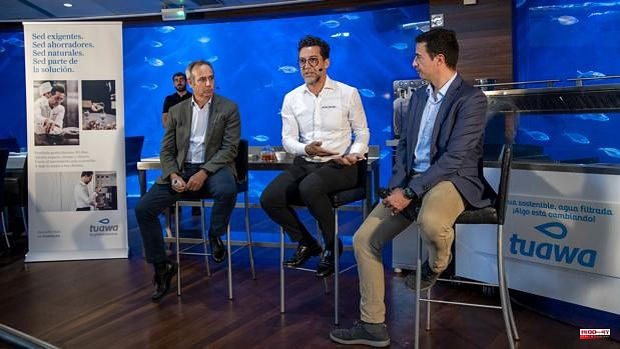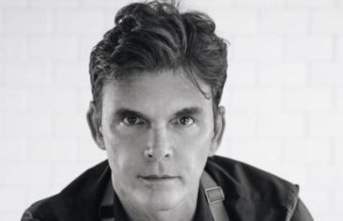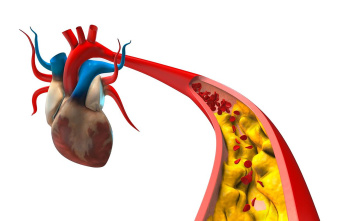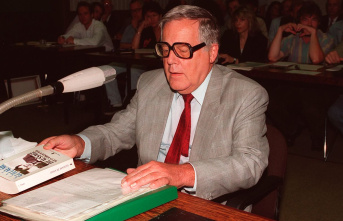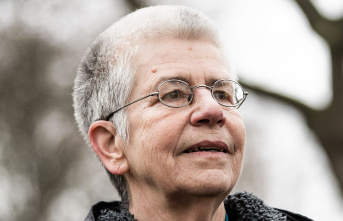The company Tuawa, the Global Omnium line to eliminate plastic at the point of consumption through tap water, together with chef Quique Dacosta, have launched a campaign to avoid the consumption of 1.2 billion plastic bottles a year and the emission of 17 tons of CO2 into the atmosphere per restaurant through the consumption of filtered water instead of plastic bottles. All this with the aim of making the Valencian Community the first community in Spain to reduce its carbon footprint and its water footprint in the hotel and restaurant sector,
The presentation event, led by Tuawa and Quique Dacosta, together with the Valencian chefs David Carrión and Rafael Morales, was attended by numerous restaurateurs and prominent agents from the hospitality industry such as the Federation of Leisure Companies (FOTUR), the Academy of Valencian Gastronomy or the Association of Valencian Self-Employed (ATA), restaurants such as El Pastoret, Westin, NH Hotels, Grupo Salamandra, Grupo El Alto, Grupo Gargallo and representatives of the business world such as Porcelanosa, Caro Hotel and Hard Rock, among others.
This campaign, which has already been implemented in numerous restaurants in the Community, proposes the installation of state-of-the-art filtered and refrigerated water sources in Valencian establishments to encourage sustainability through the consumption of local water. With this project, an average restaurant not only manages to save the planet CO2 and plastic, it can also save 7,500 euros on bottled water and free up storage of more than 3,000 bottles per month.
With this new project, Tuawa intends to help restaurants save an average of almost 36,500 plastic bottles per year and avoid the emission of an average of 17 tons of CO2 into the atmosphere, contributing in a simple and safe way to the reduction of carbon footprint. In total, if the sector adds to filtered water, 590,000 tons of CO2 could be saved into the atmosphere and seven million liters of water saved, thus leading the change in Spain.
In this sense, the three Michelin star chef Quique Dacosta has pointed out “I am proud of the restaurant sector because we continue to take steps forward in sustainability. Tuawa offers us a unique opportunity to reduce plastic consumption in Spain and thus lead a change in trend. Thanks to the whole team for making it possible and paving the way for the benefit of the environment.”
The choice of the Oceanogràfic was not accidental, because if the entire population decided to switch to bottled water, its production would have a toll of 1.43 species lost per year, since the impact on natural resources would be 3,500 times greater than that of the water from the faucet.
Tuawa began to develop the pilot project in restaurants in the city of Valencia two months ago, during which the emission of 120 tons of CO2 into the atmosphere has been avoided and the water footprint has been reduced by 1.2 million liters. Likewise, according to the latest recorded data, the use of 425,000 plastic bottles has been avoided.
In the Valencian Community there are currently 33,000 restaurants, bars and cafeterias, in addition to 1,100 hotel establishments, which means that if each establishment replaced plastic bottles with a Tuawa filtered water system, the planet could be saved 1.2 billion euros. plastic bottles per year. That would mean that each restaurant would avoid 49 kilograms of CO2 per day.
Tuawa is the result of the company's environmental commitment, in its constant search to reduce the use of single-use plastics, carbon footprint or water footprint generated by our society. Despite being able to resort to an efficient and existing source of consumption such as tap water, more than sixty percent of Valencians consume bottled water.

